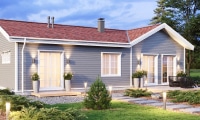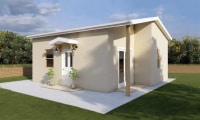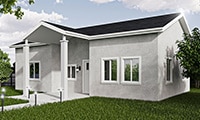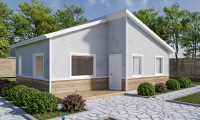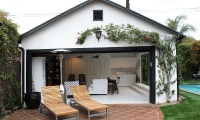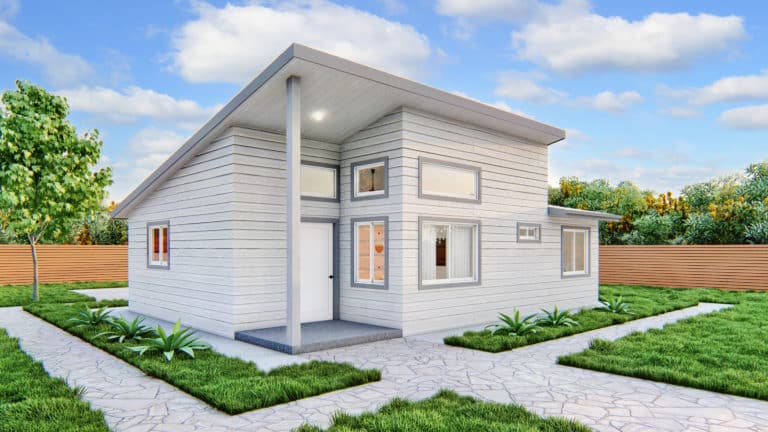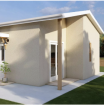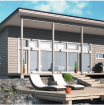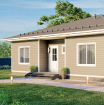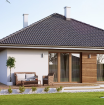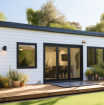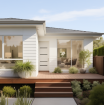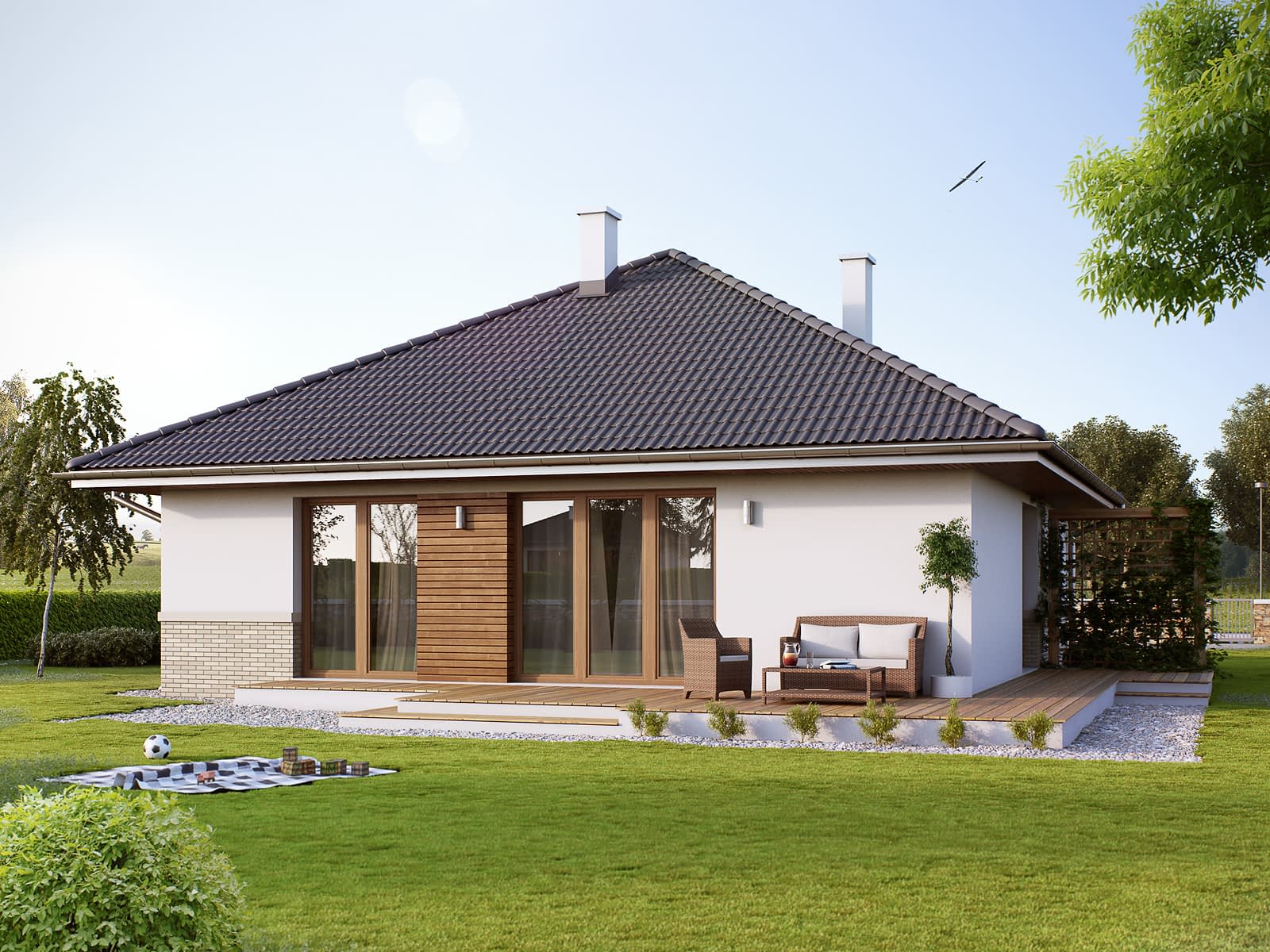
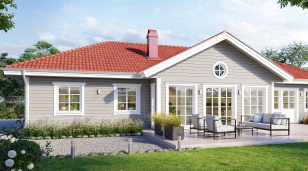
Request Accepted
A link to download your FREE brochure will be in your inbox in 3 minutes


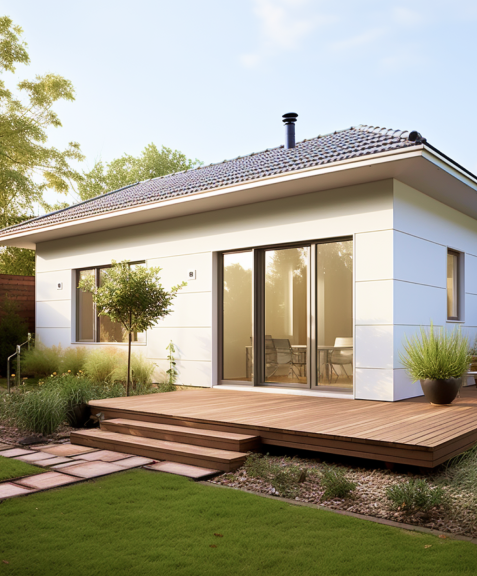

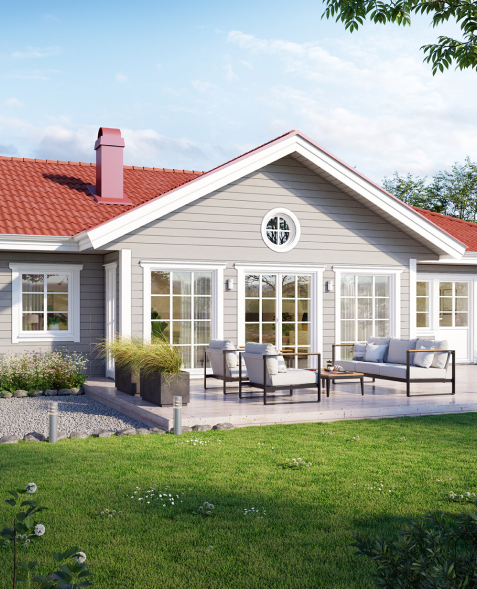
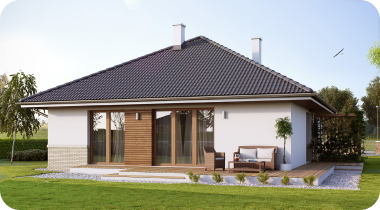


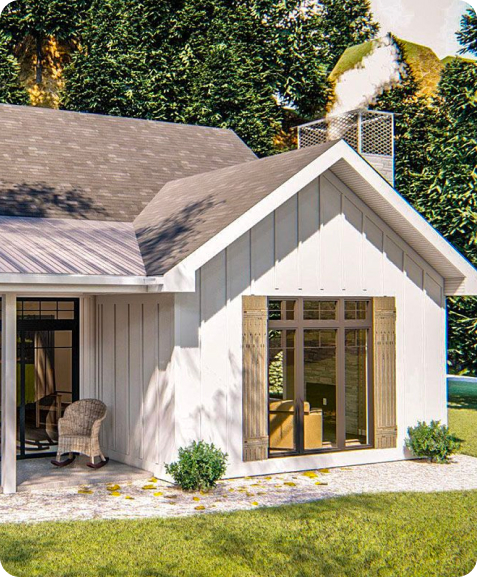

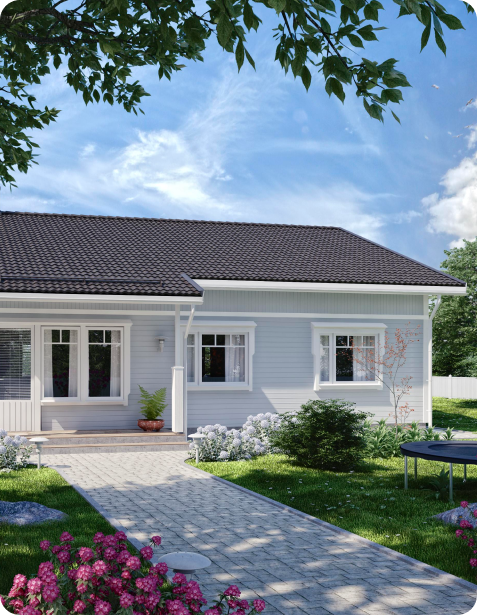
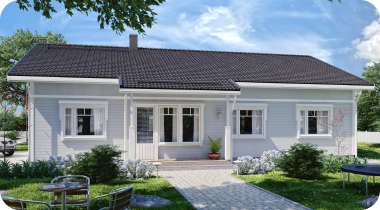
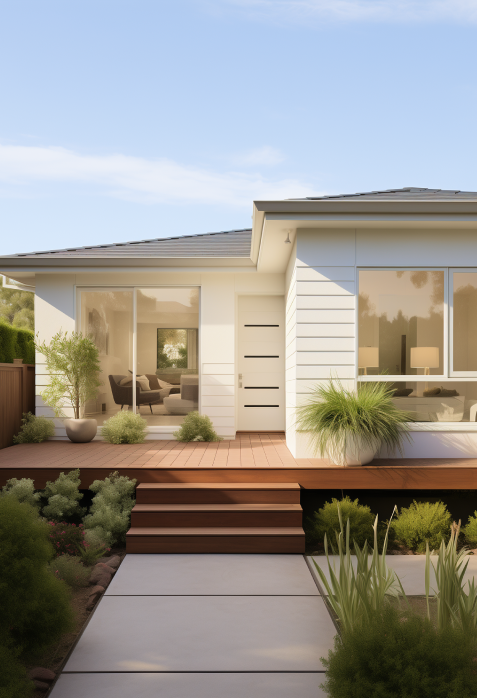
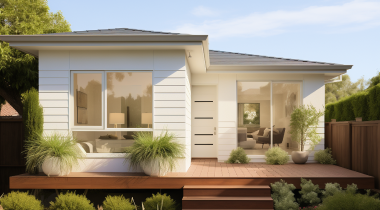
to Receive ADU Details
and Pricing

The final price may vary based on project specifics.
To get a free accurate quote tailored to your needs, book a consultation with us today!

The price per square foot provided is an average and may vary depending on project-specific details such as materials, location, complexity, and other factors. Actual costs may differ from the average provided.
It is recommended to obtain a detailed quote based on the specific requirements of your project.

Please note that the monthly payment displayed on this page is an estimate and is subject to variation based on the selected loan product, applicants credit score, loan amount, and other financial details. Actual monthly payment may differ from the estimate provided.
It is recommended to seek advice from a financial advisor or loan officer to obtain precise payment information tailored to individual circumstances.
Truckee ADU Builders
Serviced ZIP codes: 96160, 96161, 96162





























Truckee ADU Builders
Serviced ZIP codes: 96160, 96161, 96162
Truckee ADU Design & Build
Exceptional turnkey services, from plans and permits to occupancy, that simplify ADU development and ensure your peace of mind.
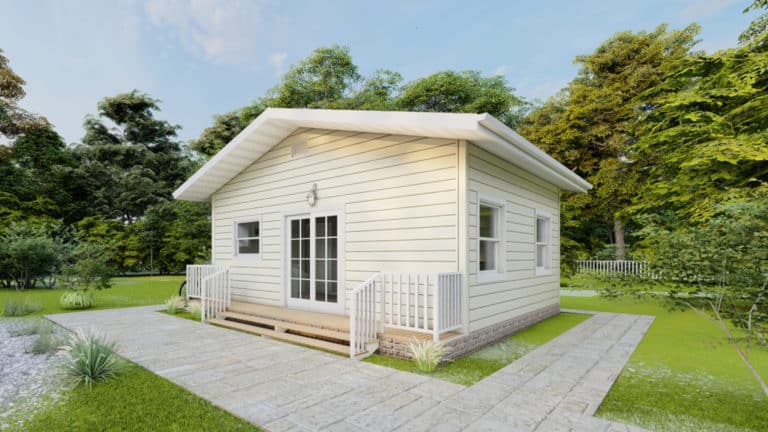
Studio ADU
The 400 sq ft studio ADU offers an efficient open layout, seamlessly combining living, sleeping, and dining spaces. With a full bathroom and energy-efficient design, it's ideal for a minimalist lifestyle or an excellent rental opportunity.
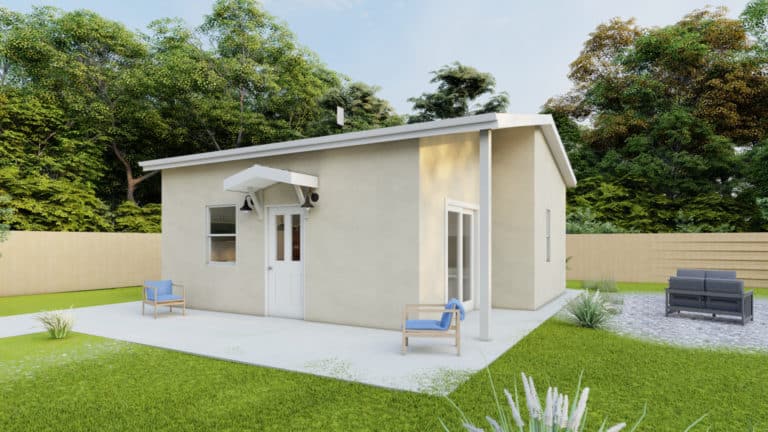
1-Bedroom ADU
The 520 sq ft 1-bedroom ADU provides versatile living solutions. Ideal for long-term rentals, it offers a self-contained space for tenants or serves as a comfortable in-law suite, ensuring independence for extended family.
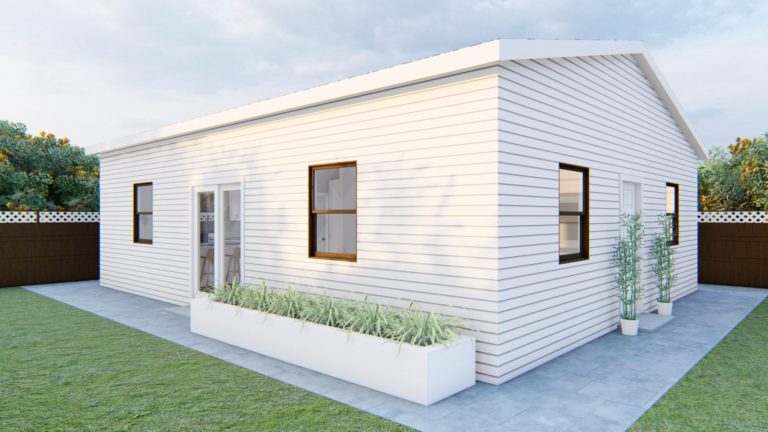
2-Bedroom ADU
The 570 sq ft ADU maximizes functionality with a full-size kitchen, two bathrooms, and two bedrooms, perfect for small families. Its thoughtful design optimizes every square foot for comfortable
living and privacy.
Turnkey Package
Preparation
- Permit ready set of plans: Architectural plans and engineering calculations, ready for a permit application.
- Interior Design: Our expert team offers personalized design consultation to create a functional and stylish interior space.
- Permit Submittal Services: We handle the hassle of permit submissions on your behalf, ensuring compliance with local regulations.
- Removal of debris: Our efficient crew takes care of removing construction debris, maintaining a clean and safe work environment.
Construction
- Concrete slab foundation: Enjoy a durable concrete slab foundation with proper grading and excavation for structural integrity.
- Exterior covered porch: Create an inviting outdoor space for relaxation and entertainment.
- Walls, partial vaulted/flat ceilings, 9′: Experience open and spacious living areas with customizable ceiling styles.
- Gable style roof: Benefit from a classic and durable roof design that adds timeless appeal to your home.
- Shingle type roof: Our high-quality shingles, along with gutters and downspouts, provide excellent protection and drainage.
- Mini-split Dual zone: Achieve optimal comfort and energy efficiency with our dual-zone mini-split system.
- Tank water heater: Enjoy a reliable water heater, conveniently housed in an outdoor galvanized water heater closet.
- Electrical sub-panel: Ensure efficient power distribution with our electrical sub-panel, meeting all safety and code requirements.
- Switches and outlets per code: We install switches and outlets throughout your home, adhering to electrical code standards.
- Exterior entry doors 36×80: Enhance security and aesthetics with our high-quality exterior entry doors.
- Standard-sized swing doors: Seamless transitions between rooms with stylish and functional doors.
- Standard-sized interior closet doors: Maximize storage space with our efficient and visually appealing closet doors.
- White vinyl windows: Enjoy energy-efficient windows that allow natural light to brighten your home while providing insulation.
- Insulation per T24: Our construction includes energy-efficient insulation for optimal comfort and reduced energy loss.
- Drywall & Orange peel or knockdown texture: Smooth and visually appealing finish with texture options.
- Interior paint: Choose from a wide range of premium paint colors to personalize your interior space.
- Painted exterior lap siding: Enhance curb appeal with professionally painted lap siding that withstands the elements.
- Luxury vinyl planks: Experience the durability and low-maintenance benefits of luxury vinyl planks for your flooring.
- Shaker style/European style cabinets: Enjoy the elegance and functionality of our shaker style or European style cabinets.
- Tile backsplash, 18″: Add a stylish and practical element to your kitchen or bathroom with an 18″ tile backsplash.
- Natural stone countertops: Elevate your kitchen and bathroom spaces with luxurious and durable natural stone countertops.
- Closet and pantry shelving: Maximize storage efficiency with our customizable shelving solutions for closets and pantries.
- Pre-assembled vanity cabinet: Our pre-assembled vanity cabinet comes complete with a countertop and splash piece backsplash.
- Acrylic shower enclosure: Experience the beauty and low-maintenance benefits of an acrylic shower enclosure.
- Plumbing fixtures and light fixtures: Our package includes high-quality plumbing fixtures and light fixtures as per the plan.
Utilities
- Labor to do trenching for utilities and run new lines: Our skilled labor team handles trenching and connects utilities, ensuring a seamless integration between the main house and ADU.
Appliances – all stainless steel
- Dishwasher, 24″: Enjoy the convenience and efficiency of a stainless steel dishwasher.
- Slide-in range, 36″: Cook with style and versatility using our stainless steel slide-in range.
- Refrigerator, 36″: Keep your food fresh and organized with our spacious stainless steel refrigerator.
- Over the range microwave-hood, 36″: Combine cooking and ventilation capabilities with our stainless steel microwave-hood.
- Garbage disposal: Experience easy and efficient waste disposal with our high-quality garbage disposal unit.
- Washer and dryer, 30″-36″: Our stainless steel washer and dryer set offers reliable performance and convenience.
Please note that the contents of the package may vary depending on the specific terms outlined in the contract. While we strive to provide accurate and consistent packages, certain variations may occur based on the agreed-upon terms and conditions.
Turnkey Custom ADU Calculator
Choose Your ADU Size
Our Latest ADU Projects
Our Process
A stress-free experience from start to finish

1. Consultation
Schedule a Virtual or an In-House Consultation with our Remodeling Consultants to discuss your project.

2. Estimate
Come in for an appointment to our Designer Showroom to go over the quote аnd pick out materials.

3. Contract
We sign a contract and get the ball rolling. You will meet with our Designer to finalize the designs.

4. Construction
We incorporate digital technologies into our construction processes to be more efficient.
Get Financing
for Your ADU Project

Contact Solano Mortgage for a free consultation.
With 30+ years of experience, we ensure no negative impact on your FICO scores or data privacy. Solano Mortgage: your trusted lender, broker, and ally with California's largest credit unions.
to Discuss Your Financing Options
A+ Construction & Remodeling?



Costs
We provide clear estimates that tell you exactly where your money is going.
Timeframe & Schedule
We provide an easy-to-follow schedule so you can see where your project is at and what is next, in real time.
License & Warranty
We are licensed, bonded and provide warranty on labor and materials because we believe it’s important for you to have a peace of mind.
Communication
We have a streamlined communication system that includes your own personal chat with your entire team ready to answer your questions at any time.

A+ Construction & Remodeling ADU Builders Proud to be recognized by































What type of ADU Construction are you looking for?
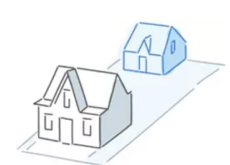
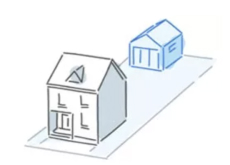
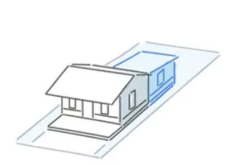
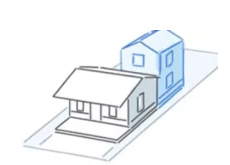
Price In
The abbreviation ADU stands for an accessory dwelling unit. This means a living space separated from the main house, where at least one more person can eat, sleep, wash, and do what an average dwelling presumes. A distinctive feature is that the ADU is either converted from an existing structure or is a new construction built from scratch, all on the same property plot as the main house.
ADU construction California offers various incentives for homeowners to consider building an accessory dwelling unit. It could function as a granny flat, allowing you to care for an elderly person without having to travel far. Or, aside from granny flats, people in a small, single-family home may just get tired of the limited space they are forced to jostle in.
A+ Construction & Remodeling offers solutions for expansion and making effective use of your space. Our specialists are well aware of the accessory dwelling unit rules and regulations. We will not only bring your ADU project to life but also select quality materials and obtain all necessary permits.
ADU Builders Truckee, CA
The benefits potentially derived from accessory dwelling units are not restricted solely to the expansion of your living space maximum size or storage space. A dwelling unit attached to the main house may bring forth several other virtues for the owner:
-
Rental income
Permitting someone to live on your property for payment can turn into a stable source of extra income, supplementing your salary. An additional $1,000-1,500 per month will pleasantly sag your pocket. Rent costs harshly depend on the location of the land piece. Moreover, to make people interested, the owners may want to make sure that the ADU has all the amenities.
-
Property value
If your plans include selling your house and moving to another city, then an ADU can contribute to multiple increases in its value. This investment pays off 100%. Therefore, it may be worth a little delay so that later you can reap the benefits of a successful investment for a long time.
-
Accommodation for relatives and friends
Accessory dwelling units are a great help for owners of single-family homes who need extra space from time to time. ADU may become a temporary refuge for a newlywed family that has not yet acquired a separate house. They can accommodate relatives in need of care or, vice versa, caretakers. Also, ADUs allow you to house out-of-state guests for a few days, avoiding the need to queue for the master bathroom.
-
Closer to the roots
An ADU can be a temporary solution if you don’t want to leave your town community but can’t afford a whole house in that area.
ADU Contractor Truckee, CA
When thinking of an ADU, your first concern is the law restrictions. Specialists from A+ know the ins and outs of the whole process; they differ on what is permitted and what requires extra approval from the local authorities.
Here are the types of ADUs allowed without extra compliance:
- Detached ADU
This is a dwelling unit that is not connected by a wall and does not come into contact with the main building. To create such an extension, the desired design can be achieved by remodeling an existing ADU, converting another freestanding structure into an ADU, adding a floor or extra space, or building a new structure in the open space for the purposes of the ADU.
- Junior ADU (junior accessory dwelling unit)
A junior accessory dwelling unit is a compact ADU with square footage that doesn’t exceed 500 s.f. According to the accessory dwelling unit rules, it must be converted from the existing space only. Unpermitted units are subject to punishment.
- Attached ADU
This type of accessory dwelling unit is connected by at least one wall to the existing primary space. Such an extension is formed by adding extra acreage to a residential building or to a garage directly adjacent to the house. It is possible to convert both existing residential areas and non-residential areas into ADUs.
- Conversions
Accessory dwelling units of this type are a variation of existing units’ transformation. You can transfer your garage or its non-usable part to a residential, livable space with minimal conveniences. Or use this space as a workshop for your hobbies, a storage space, a mini gym, etc.
A+ Construction & Remodeling Certifications
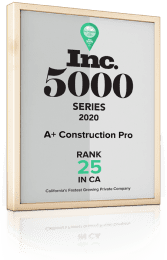
INC. 5000 Ranking

EPA Certification
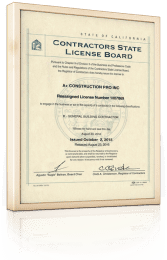
LIC #1007869 CSLB
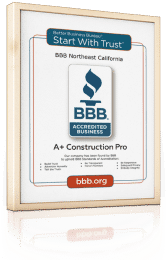
Accreditation with BBB

Member of NKBA
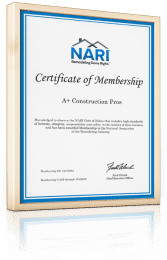
Member of NARI
What Makes A+ Construction & Remodeling Unique

BUILDING FOR YOU

CERTIFICATIONS

BIGGER SAVINGS

DESIGNER SHOWROOM

NO HIDDEN COSTS

SUPERIOR PRODUCT

TRUSTED SOURCES

ECO FRIENDLY

NO PRESSURE SALES
ADU Construction Company Truckee,CA
In order to select good specialists, it is necessary to comply with some rules in terms of choosing criteria:
- Client-approved
After all, the detached opinion of people who have already used the services of the company, clothed in the form of a review, can be much closer to the truth than any other source of information.
- Availability in your town
An applicant has to make sure his town is serviced by the ADU providers. Enter your zip code in the field for verification and press the button.
- Licenses and certificates
The presence of documents proves that the specialist has the necessary competencies and qualifications to provide certain types of work.
ADU Building Service Provider in Truckee
Why would you need a team of experienced professionals to build an ADU in your city? There are several answers to this question:
-
A+ specialists know the laws and regulations
Of course, if it’s your parcel with a title, you can convert your garages or terrace as you wish. But are you sure that this area belongs to the area with residential purposes? Our professionals have been working in this area for a long time, so they have gained experience both in the building’s implementation and in its support. They are aware of how to act in compliance with established rules, when additional approval from the authorities is needed, and which works are generally permitted and which are prohibited.
Fire safety, plumbing, and electricity installation – all these are areas where you need to be careful not to break the rules.
-
Help to bring the completion date closer
If you have a full-time job, doing repairs yourself is time-consuming and expensive. If you are not a professional and do not know what materials are better and, where to purchase them at reasonable prices or what tools to use, where to get them, you can not only get stuck in repair work indefinitely but also lose money. First of all, because of the need to redo low-quality work.
-
Free cost estimate in your town
If you are interested in ADU but not sure about costs, this offer from A+ Construction and Remodeling is right for you. Working on Truckee street, experts can come to your house at any convenient time to assess the upcoming work and inform you about the cost of materials, fees, and more.
ADU Building Process Steps
Our comprehensive ADU construction process includes permit ready set of plans, interior design, submittal services, removal of debris. We are committed to using only the highest quality materials, ensuring the longevity and value of your ADU. With our ADU Building Services: From initial design consultations to the final touches, we’re with you every step of the way.ADU Construction Process Steps
Step 1. Permit ready set of plans: Architectural plans and engineering calculations, ready for a permit application.Step 2. Interior Design: Our expert team offers personalized design consultation to create a functional and stylish interior space.
Step 3. Permit Submittal Services: We handle the hassle of permit submissions on your behalf, ensuring compliance with local regulations.
Step 4. Removal of debris: Our efficient crew takes care of removing construction debris, maintaining a clean and safe work environment.
ADU Construction Includes
Please note that the contents of the package may vary depending on the specific terms outlined in the contract. While we strive to provide accurate and consistent packages, certain variations may occur based on the agreed-upon terms and conditions.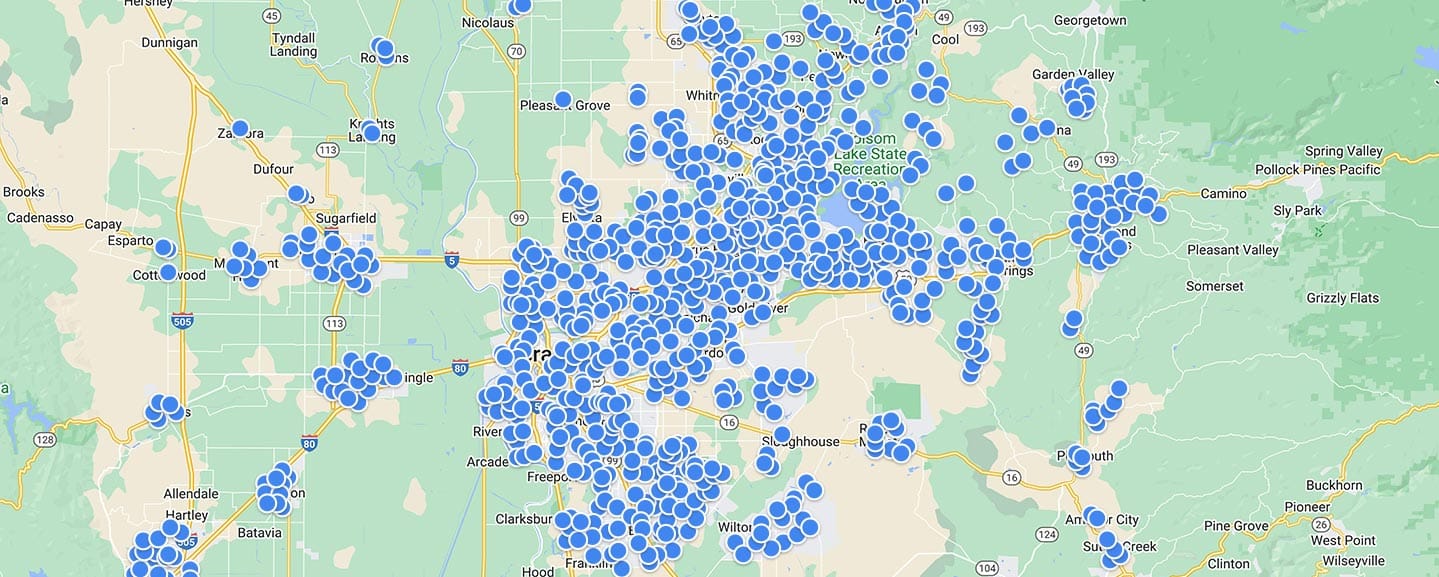
- Allendale Solano
- Alta
- Antelope
- Apple Hill
- Arden Arcade
- Auburn
- Auburn Lake Trails
- Beale AFB
- Cameron Park
- Camino
- Carmichael
- Carnelian Bay
- Cedar Flat
- Citrus Heights
- Clarksburg
- Clay
- Cold Springs
- Colfax
- Coloma
- Courtland
- Davis
- Diamond Springs
- Dixon Solano
- Dollar Point
- Dunnigan
- Dutch Flat
- East Nicolaus
- El Dorado Hills
- El Macero
- Elk Grove
- Elmira Solano
- Elverta
- Esparto
- Fair Oaks
- Fairfield Solano
- Florin
- Folsom
- Foothill Farms
- Foresthill
- Freeport Sacramento
- Fruitridge Pocket
- Galt
- Georgetown
- Gold River
- Granite Bay
- Grass Valley
- Grizzly Flats
- Hartley Solano
- Herald
- Hood Sacramento
- Isleton
- Kings Beach
- Knights Landing
- La Riviera
- Lemon Hill
- Lincoln
- Linda
- Lodi
- Loomis
- Madison
- Marysville
- Mather
- McClellan
- McClellan Park
- Meadow Vista
- Meyers
- Monument Hills
- Natomas
- Newcastle
- Nicolaus
- North Auburn
- North Highlands
- Olivehurst
- Orangevale
- Parkway
- Penryn
- Placerville
- Plumas Lake
- Pollock Pines
- Rancho Cordova
- Rancho Murieta
- Rio Linda
- Rio Oso
- Robbins
- Rocklin
- Rosemont
- Roseville
- Sheridan
- Shingle Springs
- South Lake Tahoe
- Stockton San Joaquin
- Suisun City Solano
- Sunnyside-Tahoe City
- Sutter
- Tahoe Vista
- Tahoma
- Trowbridge
- Truckee
- University of California-Davis
- Vacaville
- Vallejo Solano
- Vineyard
- Walnut Grove
- West Sacramento
- Wheatland
- Wilton
- Winters
- Woodland
- Yolo
- Yuba City
 Serving communities since 1997
Serving communities since 1997

